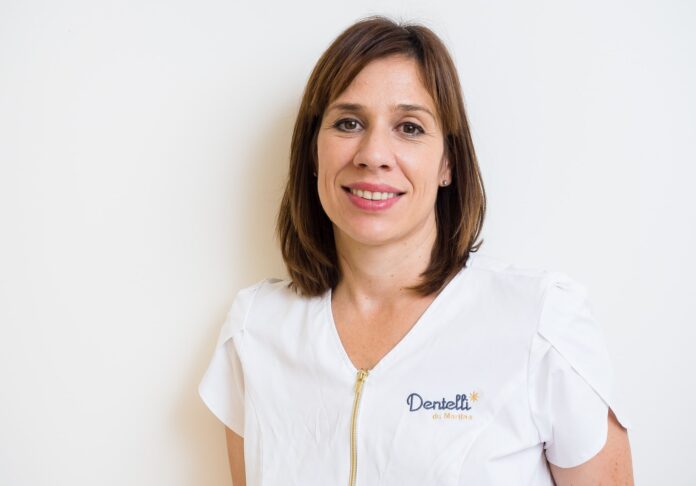
One in 15 people in Wales driven to tears by their dental look
THE DRAMATIC extent to which Welsh lives are adversely impacted by the appearance of their teeth has been revealed in a new survey.
Alarmingly, the research found that around one in 15 (7.2%) people living in Wales have been reduced to tears because of how their teeth look,
The shock findings show that 21.6% people in Wales are unhappy with their overall smile, a percentage that rises to 23.7% who are unhappy with the condition of their teeth.
Indeed, perceived dental deficiencies are causing a host of anxieties that affect day-to-day life in an era dominated by Instagram and other photo apps. Indeed, 21.6% of Welsh respondents admitted they never show their teeth in photos. Even among those in Wales who do smile for the camera, around one in 15 (7.2%) have used apps to edit the appearance of their gnashers.
Overall, the startling results reveal that image-conscious Welsh folk spend huge amounts of time fretting about the appearance of their mouths – a whopping average of 61 minutes per week wishing they had better teeth and 55 minutes worrying what other people think of their pearly whites.
The research was commissioned by a leading European dentist, Dr Martina Karlo, who has seen an influx of British patients in the wake of negative reports about failed cosmetic dentistry abroad, dubbed “Turkey teeth”.
Dr Karlo’s hi-tech Dentelli clinic in the sunshine resort of Split, Croatia, is governed by strict EU dental regulations and she said: “It is clear that many Brits are in limbo, unable to get the treatment they want and that has a drastic, negative impact on their lives.
“Our UK patients regularly tell us how they now see themselves through social media and video calls. Likewise Love Island and celebrity culture has changed perceptions of how the ‘ideal smile’ looks.
“I’d say without any hesitation that Britons are more conscious of their teeth than ever before, something that is backed up by these findings.”
The detailed research was conducted by Opinion Matters, among a sample of 2,011 nationally representative UK respondents aged 16 and over – with findings also delving into how dental aesthetics affect an individual’s chance of finding love.
Almost 20% of those asked admitted they would not date someone with teeth they considered bad. Meanwhile 6.2% of respondents admitted they automatically reject people on dating apps because of their teeth.
Meanwhile, the positive impact of an improved smile was found to be huge, with 38.1% of Welsh respondents admitting they would feel “much more confident” if they had better teeth.
Dr Karlo added: “Every year we see more patients from Wales. Most want treatments they can’t afford at home. We transform their smile, bite, and oral health and that literally changes their life for the better, bringing increased happiness and confidence.”
Visiting Croatia is significantly cheaper than comparative treatment in the UK and crowns, veneers and dental implants are the most popular procedures, with British patient spending on average of £5,320 (€6,000) on treatments at the clinic.
Yet, the survey found that while nearly one in 10 people in Wales had considered flying abroad for treatment, various worries prevented many from following through. Nearly a third (32%) are worried about costs, while over one in seven (16.5%) are concerned about healthcare standards abroad and nearly one in 10 (8.2%) fear results would not look natural.
However, Dr Karlo added: “Our UK clients are reassured by the exacting medical standards and consumer protections offered within EU countries, which are among the most rigorous in the world.
“Unlike some of the cheaper dental tourism hotspots, Croatia is bound by incredibly strict EU laws and regulations. Safety and standards are paramount, which gives patients peace of mind they simply cannot get in places like Turkey.”
Dr Karlo has invested more than a million Euros in her state-of-the-art practice. Dentelli was founded in October 2019 and has an annual turnover of €2 million (£1.78m). The clinic carries out 17,000 procedures each year and most of its 28-strong team – from dentists and nurses to technicians and hygienists – speak fluent English.
In 2022, Split airport welcomed around 500,000 British passengers, more than 17% of its total visitor count which made the UK its second biggest market last year. Direct flights to Split start £31 at Bristol Airport, £76 at Birmingham Airport and £99 at Manchester Airport throughout the summer with an average flight time of around three hours via Jet2 and EasyJet.
Most patients work with the clinic to carefully plan their treatment procedures, so that they can enjoy the tourist experience of Split and the surrounding area.
DENTAL SURVEY FACT FILE / SIDEBAR
How Brits feel about their teeth varies significantly between cities and regions across the UK.
The survey of more than 2000 people, commissioned by Dentelli, shows major geographic swings in the way dental worries influence daily life from dating to social media activity and mental wellbeing.
The city where people are most disaffected is Glasgow, where over a quarter (28%) of the population said they were unhappy with their smile, compared with a national average of 21%. Yet just 50 miles away in Edinburgh the figure was the lowest in the country, at just under one in six (15%). On a regional level the highest and lowest figures were in the North East (28%) and London (17%)
In extreme cases Brits admitted they had cried about their teeth. City wise, the issue was most prevalent is Belfast where one in seven (14%) were reduced to tears, compared with just one in 25 in Manchester. The regional picture showed Northern Ireland at one in eight (12%) and the South East at 4%.
It was also a patchwork picture on those unhappy with how their teeth look in photographs. Most dissatisfied were in Plymouth (over a third – 35%), while the lowest figure was in the Scottish capital, at just a fifth 20%. Regionally the South West and Yorkshire & Humber were tied at 32.7%, while the stats were just a fifth 20% in Greater London.
Many of those questioned said they always felt their teeth look bad in photographs – just under a quarter (24%) in Sheffield, compared with just one in 14 (7%) in Brighton. Across Yorkshire & Humber the figure was highest at 20%, while the lowest regional stats were in the East Midlands with one in seven (14%).
In the era of Instagram and other picture apps, photography proved a major bugbear, large numbers hide their teeth in photos – just over three in 10 (31%) in Liverpool compared with just one in nine 11% in Edinburgh. The regional highs and lows were 27.2% in the North East and just 12.2% in the East Midlands.
One solution is to use filters or editing tools with one in 20 (5%) of Brits admitting they have used editing apps to hide their teeth – Glaswegians resorted to this trick the most at 10.3%, compared to just 1% in Brighton (Regional highs and lows – East Midlands 8%, Northern Ireland 2%)
The research showed that friendships have been ruined by ill-considered social media posts. A significant number of people confessed they have had a falling out with a friend who posted a bad
picture of their teeth. That figure was highest in Leeds at one in 10 (10%) but zero in both Brighton and Liverpool. By region the highest fallout figures were in Greater London and the West Midlands – both 8% – while the lowest numbers were in Northern Ireland at 2%.
However, image-conscious Brits don’t just focus on their own teeth – the condition of a potential partner’s pearly whites are huge factor on the dating scene. The fussiest folk are in Brighton, were just over a quarter (26%) said they wouldn’t date someone with bad teeth, compared with less choosy Newcastle at one in 10 (10%). Regional highs and lows were Greater London at 22.7% and the North East at one in 10 (11%).
The stats also offer a cautionary note for anyone trying to find love on dating apps, with large numbers of the 2000 people polled admitting that they reject people with bad teeth on dating apps. In Manchester one in eight (12%) of people swipe left to reject dodgy teeth, compared with just 2% in Bristol. In Greater London the figure was just over one in eight (13%), in the South West just one in 25 (4%)
Unsurprisingly, large number of Brits have considered getting their teeth fixed abroad – with the highest number in Belfast – just under a quarter (23.5%) and the lowest in Brighton – one in 25 (4%). Regional highs and lows were Greater London at just over one in six (17%) and Scotland at one in 20 (5%.)

| [donate]
| Help keep news FREE for our readersSupporting your local community newspaper/online news outlet is crucial now more than ever. If you believe in independent journalism,then consider making a valuable contribution by making a one-time or monthly donation. We operate in rural areas where providing unbiased news can be challenging. |

















